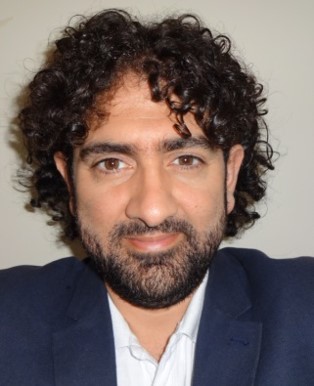Density Functional Theory
Within the Scientific Computing Department (SCD) we work on the development and application of computational methods for studying materials at the atomic scale. In particular, we work on developments associated to Density Functional Theory (DFT), which is one of the main quantum-mechanical modelling methods used in physics, chemistry and materials science to investigate the electronic structure of systems such as atoms, molecules and solids.
Our approach goes beyond DFT and is aimed at overcoming some of the limitations of the standard form of this theory. Specifically, one of the methods that we develop is known as the self-interaction corrected DFT. This method is a powerful tool to model materials such as transition metal oxides, rare earth materials and actinides. In particular, the combination of the self-interaction correction method with a mean-field theory for disorder can be used to describe finite temperature magnetism in magneto-responsive rare earth compounds, which play an increasingly important role in the development of novel materials for high-tech applications such as mobile phones, radiation detectors, air conditioning and renewable energies.
Modern Computational Methods and their Applications in Materials Science
 Scientific Computing's Dr Ivan Scivetti presents a new software to analyse experimental data and provide an automated way to generate atomistic models for computation. The work relates to analytical techniques that will accelerate improvements in battery technologies. The talk was delivered at the 2021 Fall Meeting of the European Materials Research Society.
Scientific Computing's Dr Ivan Scivetti presents a new software to analyse experimental data and provide an automated way to generate atomistic models for computation. The work relates to analytical techniques that will accelerate improvements in battery technologies. The talk was delivered at the 2021 Fall Meeting of the European Materials Research Society.
Watch the presentation 'Towards automated stoichiometric resolution in electrochemistry: Density Functional Theory aided, Quartz Crystal Microbalance'.
More information about this important area of research can be found in the following articles:
Cross-Disciplinary Research Results in New Analytical Technique to Accelerate Improvements of Battery Technologies
New Analytical Technique to Unravel Degradation Mechanisms of Electro-Active Materials and Accelerate Improvements of Battery Technologies
